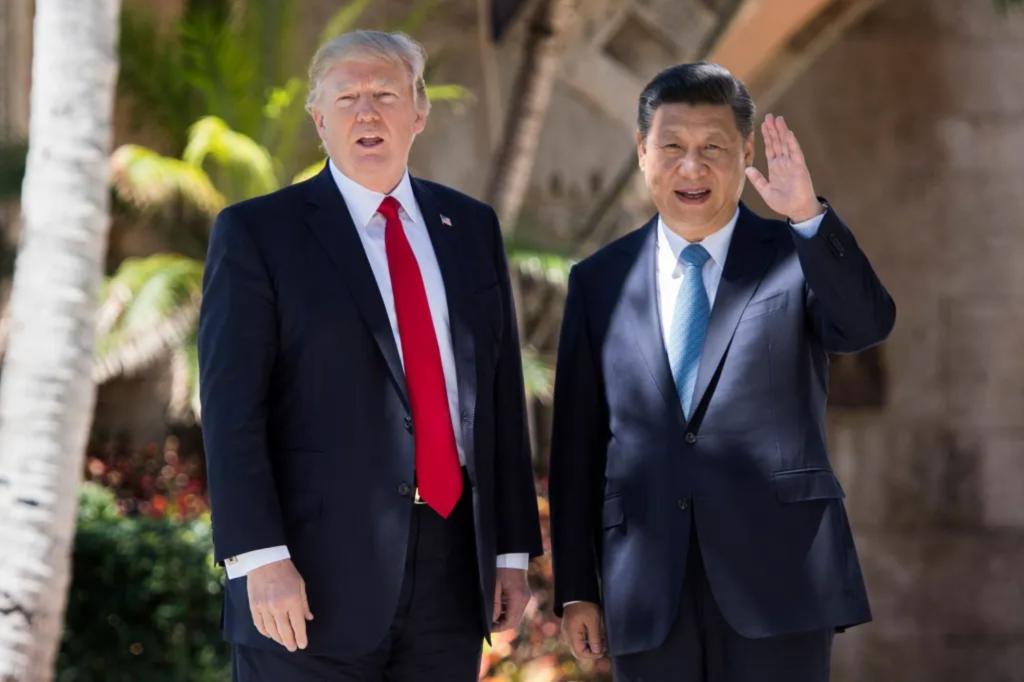Xi’s Unlikely Attendance and the Symbolism of the Invitation
The invitation extended by President-elect Donald Trump to Chinese leader Xi Jinping to attend his inauguration has sparked speculation and analysis regarding its implications for the complex US-China relationship. While the gesture might be interpreted as an olive branch, experts believe that Xi’s attendance is highly improbable due to a confluence of factors, primarily concerning protocol, political risks, and the potential for perceived slight to China’s standing on the world stage. Xi Jinping, as the leader of a rising global power, is unlikely to attend an event where he might be perceived as playing a secondary role, particularly given the historically fraught relationship between the two nations. The optics of attending a celebration of a US president, especially one with a history of unpredictable policy shifts concerning China, could be detrimental to Xi’s image and authority within China.
Experts highlight several reasons for Xi’s likely absence. Firstly, the unprecedented nature of a Chinese leader attending a US presidential inauguration creates uncertainty and potential protocol pitfalls. Beijing is known for its meticulous planning and emphasis on ensuring the dignity and security of its top leaders during foreign visits, typically requiring the full pomp and circumstance of a state visit. Attending an inauguration as a guest, rather than as the central figure of a state visit, would represent a departure from this established practice. The presence of other attendees, such as Taiwanese representatives, could also create diplomatic complications, given Beijing’s stance on Taiwan’s sovereignty.
Secondly, the volatile political climate surrounding US-China relations adds another layer of complexity. Trump’s previous actions, including the initiation of a trade war with China, create uncertainty about his future policies. Attending the inauguration amidst such unpredictability could expose Xi to potential embarrassment or political maneuvering, especially if Trump were to enact policies detrimental to China shortly after the event. The possibility of new tariffs on Chinese goods, a measure Trump has previously threatened, further complicates the situation.
Trump’s Motivation and the Future of US-China Relations
While Xi’s attendance is unlikely, the invitation itself warrants examination. Trump’s motivation could be multifaceted, ranging from a genuine desire to improve relations to a tactical move aimed at influencing future negotiations. His preference for face-to-face meetings, especially with adversaries, suggests a potential desire to establish a personal rapport with Xi early in his presidency. This approach might be seen as an attempt to circumvent traditional diplomatic channels and secure more favorable deals through direct engagement.
However, the invitation should not be interpreted as a signal of softening stance towards China. Trump’s selection of known China hawks for key cabinet positions, including Senator Marco Rubio as Secretary of State and Representative Mike Waltz as National Security Advisor, indicates a continuation of his hardline approach. This juxtaposition of seemingly contradictory actions – extending an invitation while simultaneously appointing hawkish advisors – reinforces the unpredictable nature of Trump’s foreign policy.
The impact of Trump’s return to the White House on US-China relations is expected to be significant. While Beijing has adopted a cautious "wait-and-see" approach, it has also signaled its readiness to retaliate against any hostile actions by Washington. The potential for escalating tensions, particularly regarding trade and Taiwan, looms large. Trump’s past behavior demonstrates his willingness to employ both conciliatory and aggressive tactics, creating a challenging dynamic for China.
China’s Calculated Approach and the Potential for Misinterpretation
China’s response to the invitation will likely be measured and cautious. Beijing is acutely aware of the potential for misinterpreting Trump’s actions and will strive to avoid being "played" by his unpredictable moves. The historical precedent of Trump’s 2017 visit to China, followed by the initiation of a trade war the following year, serves as a cautionary tale. This experience underscores the potential for Trump to shift from friendly gestures to hostile policies without warning, a scenario Beijing will be keen to avoid.
Given the complexities and uncertainties surrounding the US-China relationship, China is likely to prioritize stability and avoid any actions that could escalate tensions. Xi’s absence from the inauguration should not be interpreted as a snub but rather as a calculated decision based on pragmatic considerations. China’s focus will remain on protecting its interests and maintaining its global standing, while cautiously navigating the unpredictable waters of Trump’s foreign policy.
The Dynamics of Great Power Competition
The interplay between the US and China under a second Trump administration is expected to be characterized by intensifying competition. Both nations are vying for global influence, and their conflicting interests in areas such as trade, technology, and geopolitics will likely fuel further tensions. The potential for miscalculation and escalation remains a significant concern.
While Trump’s personal style of diplomacy may differ from traditional approaches, the underlying structural issues driving US-China competition are unlikely to change. The fundamental differences in political systems, economic models, and strategic goals will continue to shape the relationship. The challenge for both sides will be to manage these differences effectively and avoid a descent into open conflict.
Navigating Uncharted Waters
The US-China relationship under a second Trump presidency enters uncharted territory. The combination of Trump’s unpredictable behavior and the underlying structural tensions between the two nations creates a complex and volatile dynamic. China’s cautious approach reflects the inherent uncertainties and potential risks involved.
While the invitation to Xi Jinping to attend the inauguration may have been intended as a gesture of goodwill, its implications are far-reaching and complex. The likelihood of Xi’s absence highlights the significant challenges facing the US-China relationship and underscores the need for careful diplomacy and a nuanced understanding of each other’s motivations and interests.







